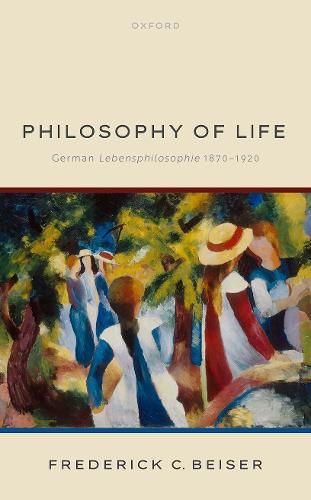Readings Newsletter
Become a Readings Member to make your shopping experience even easier.
Sign in or sign up for free!
You’re not far away from qualifying for FREE standard shipping within Australia
You’ve qualified for FREE standard shipping within Australia
The cart is loading…






Philosophy of Life explores the intellectual movement called Lebensphilosophie, which flourished in Germany from 1870 until 1920. Author Frederick C. Beiser focuses on its most prominent members: Friedrich Nietzsche, Wilhelm Dilthey, and Georg Simmel. Lebensphilosophie appeared at a critical movement in Western culture; it was a response to several important cultural developments of the late 19th century: atheism, relativism, historicism and pessimism. The Lebensphilosophen believed that meaning of life had to be found in life itself and denied the relevance of any transcendent realm of meaning. To affirm the value of life, they reacted against Schopenhauer's pessimism; they proclaimed that the joys of life outweighed its sorrows, and that there is an infinite value in living life to its fullest. They developed a radical individualist ethic, which proclaimed the value of individual self-realization above all other goods. As part of this radical individualism, they disputed the existence of absolute moral values; and by insisting on the historicity of life, they affirmed the relativity of all values. This was the first intellectual movement in the Western tradition to develop an entirely secular and humanist conception of life. Many of its doctrines are familiar to students of Nietzsche; but readers will find that he was only one of an entire intellectual movement.
$9.00 standard shipping within Australia
FREE standard shipping within Australia for orders over $100.00
Express & International shipping calculated at checkout
Philosophy of Life explores the intellectual movement called Lebensphilosophie, which flourished in Germany from 1870 until 1920. Author Frederick C. Beiser focuses on its most prominent members: Friedrich Nietzsche, Wilhelm Dilthey, and Georg Simmel. Lebensphilosophie appeared at a critical movement in Western culture; it was a response to several important cultural developments of the late 19th century: atheism, relativism, historicism and pessimism. The Lebensphilosophen believed that meaning of life had to be found in life itself and denied the relevance of any transcendent realm of meaning. To affirm the value of life, they reacted against Schopenhauer's pessimism; they proclaimed that the joys of life outweighed its sorrows, and that there is an infinite value in living life to its fullest. They developed a radical individualist ethic, which proclaimed the value of individual self-realization above all other goods. As part of this radical individualism, they disputed the existence of absolute moral values; and by insisting on the historicity of life, they affirmed the relativity of all values. This was the first intellectual movement in the Western tradition to develop an entirely secular and humanist conception of life. Many of its doctrines are familiar to students of Nietzsche; but readers will find that he was only one of an entire intellectual movement.